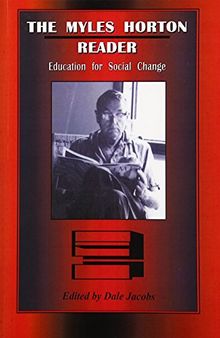 جزییات کتاب
جزییات کتاب
Cornel West has called Myles Horton “an indescribably courageous and visionary white brother from Tennessee.” Horton (1905-1990) cofounded the Highlander Folk School (now known as the Highlander Research and Education Center), an institution controversial from its beginnings. During the early labor movement, the Highlander School sponsored programs for both union organizers and rank-and-file members; the staff of Highlander saw education as a way to approach and work through problems. Issues of race were always important to the school, which became a beacon for the civil rights movement; its summer institutes included such influential participants as Rosa parks, Martin Luther King Jr., and Andrew young. His commitment to education as an agent of social change allowed Horton to see himself as both a teacher and a student, as one who could learn from others as well as help others learn. The Myles Horton Reader presents essays, speeches, and interviews, giving the reader a grounding in the pathbreaking work of an extraordinary man.
The editor: Dale Jacobs is assistant professor of English and director of composition at the University of Windsor in Ontario, Canada. His work has appeared in Composition Studies, Journal of the Assembly for Expanded Perspectives on Learning, National Writing Project Quarterly, and other publications.
 دانلود کتاب
دانلود کتاب
 جزییات کتاب
جزییات کتاب









 این کتاب رو مطالعه کردید؟ نظر شما چیست؟
این کتاب رو مطالعه کردید؟ نظر شما چیست؟
